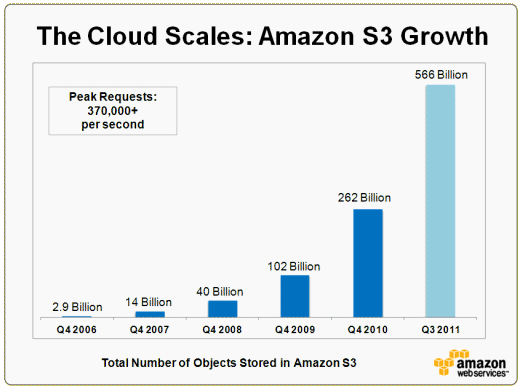- 销售易与腾讯战略合作再升级,共同开拓SaaS赛道增长新机遇
saassaas平台
2月14日,中国CRM领军者销售易宣布与腾讯战略合作升级,双方将围绕产品、技术、生态等维度加大协同力度,共同开拓SaaS赛道增长新路径、新机遇。为了进一步整合和发挥双方优势资源能力,腾讯集团副总裁、政企业务总裁李强将兼任销售易董事长,销售易创始人史彦泽继续担任CEO。李强于2021年加入腾讯,此前曾担任SAP全球高级副总裁、中国区总经理,拥有20多年的企业管理经验,对云计算、商业软件以及创新商业模
- 面向对象设计模式的基本概念、分类、作用方式、优缺点——系统地学习面向对象设计模式,提升软件质量
AI天才研究院
Python实战Java实战自然语言处理人工智能语言模型编程实践开发语言架构设计
作者:禅与计算机程序设计艺术1.简介随着互联网、移动互联网、物联网等新兴技术的普及,越来越多的应用被部署在云端,并受到用户需求的驱动。云计算平台带来的高弹性、可伸缩性、按需付费等优势使得云端服务的开发和运维变得更加复杂。传统软件开发模式下,程序员需要花费大量的时间和精力来解决软件的结构化和可维护性问题,而面向对象的设计模式则可以很好地帮助程序员解决这些问题。面向对象设计模式是一种抽象的、形式化的解
- java:关于 Java 技术
Katie。
Java实战项目java开发语言
Java技术详解一、前言Java作为一种跨平台、面向对象的编程语言,自1995年由SunMicrosystems(后被Oracle收购)推出以来,便以其简单易学、稳定安全和高性能等优点风靡全球。经过二十余年的不断发展,Java已经成为企业级应用开发、移动互联网、分布式系统、大数据以及云计算等多个领域的主流技术之一。本文将对Java技术进行全面而深入的介绍,从语言基本语法到高级特性,从JVM架构到企
- UI前端与数字孪生:打造智慧城市的双引擎
共享ui设计和前端开发人才
智慧城市人工智能
hello宝子们...我们是艾斯视觉擅长ui设计和前端数字孪生、大数据、三维建模、三维动画10年+经验!希望我的分享能帮助到您!如需帮助可以评论关注私信我们一起探讨!致敬感谢感恩!随着信息技术的飞速发展,智慧城市的概念逐渐从理论走向实践。智慧城市旨在通过运用物联网、大数据、云计算等先进技术,实现城市的高效管理、资源的优化配置和居民生活质量的提升。在这个过程中,UI前端与数字孪生技术成为了不可或缺的
- 理解本真的REST架构风格
熊猫小牛牛
系统架构技术架构rest
转自:http://blog.csdn.net/j080624/article/details/56025356引子在移动互联网、云计算迅猛发展的今天,作为一名Web开发者,如果您还没听说过“REST”这个buzzword,显然已经落伍了。夸张点说,甚至“出了门都不好意思跟别人打招呼”。尽管如此,对于REST这个泊来品的理解,大多数人(包括一些资深的架构师)仍然停留在“盲人摸象”的阶段。常常听到各
- 科拓全智能停车收费系统T_SellFrom.aspx存在SQL注入漏洞(DVB-2025-9011)
Byp0ss403
漏洞复现集合SQL注入web安全
免责声明仅供网络安全研究与教育目的使用。任何人不得将本文提供的信息用于非法目的或未经授权的系统测试。作者不对任何由于使用本文信息而导致的直接或间接损害承担责任。如涉及侵权,请及时与我们联系,我们将尽快处理并删除相关内容。一:产品介绍科拓全智能停车收费系统是一款集车牌识别、电子支付、车位引导等功能于一体的智能化停车管理平台,通过物联网技术和云计算实现无人值守停车管理,支持微信/支付宝等移动支付方式,
- 边缘计算与物联网的结合
AI天才研究院
AI大模型企业级应用开发实战AI大模型应用入门实战与进阶DeepSeekR1&大数据AI人工智能大模型计算科学神经计算深度学习神经网络大数据人工智能大型语言模型AIAGILLMJavaPython架构设计AgentRPA
1.背景介绍在现代科技的发展中,物联网(IoT)和边缘计算是两个重要的概念。物联网是一种普遍的网络概念,它连接了各种物理设备,包括电子设备、软件、传感器、执行器和网络,使它们能够收集和交换数据。而边缘计算则是一种分布式计算范式,它将计算任务、数据和服务靠近数据源的地方,也就是网络的边缘。过去几年,物联网设备的数量和使用率都在快速增长。然而,随着设备数量的增加,数据处理的需求也在增加。传统的云计算模
- 五大.NET开源框架,助你快速构建高效应用,告别996!
墨夶
C#学习资料1.net开源
在当今快节奏的软件开发环境中,选择正确的工具可以显著提高团队的工作效率。对于使用.NET技术栈的开发者而言,拥有一个强大且易于使用的快速开发框架意味着能够更快地将想法转化为实际产品,同时减少重复劳动。本文将详细介绍五个备受推崇的.NET开源框架,它们不仅提供了丰富的功能特性,还支持现代化的前后端分离架构,帮助企业和个人开发者轻松应对复杂的业务需求。一、随着云计算、微服务等新兴技术趋势的发展,传统的
- Spring Cloud Stream:打造强大的微服务事件驱动架构
Java爱好狂.
java开发语言
随着云计算、微服务和大数据技术的快速发展,构建可扩展、高性能和弹性的应用程序变得越来越重要。为了满足这些要求,许多开发人员转向了事件驱动架构,它允许应用程序通过基于事件的方式相互通信,从而提高了系统的响应速度和伸缩性。在这个背景下,SpringCloudStream应运而生,它是一个用于构建基于事件驱动的微服务应用程序的框架,可以与现有的消息中间件(如ApacheKafka和RabbitMQ)无缝
- 2022年全国职业院校技能大赛(高职组)“云计算”赛项赛卷②公有云
旺仔Sec
#云计算职业院校技能大赛竞赛试题云计算公有云
2022年全国职业院校技能大赛(高职组)“云计算”赛项赛卷2第三场次:公有云(30分)环境说明:某信息技术科技公司实施数字化转型与应用上云,要对公司内部项目搭建基于云原生的Devops相关服务。选择国内公有云提供商,为客户提供K8S、云网络、云硬盘、云防火墙、负载均衡等服务,可创建Web服务,共享文件存储服务,数据库服务,数据库集群等服务。根据上述公有云平台的特性,完成公有云中的各项运维工作。任务
- 2020年全国职业院校技能大赛改革试点赛高职组“云计算”竞赛赛卷第二场次题目:容器云平台部署与运维
春生黎至1005
云计算全国职业技能竞赛样题云计算kubernetes
2020年全国职业院校技能大赛改革试点赛高职组“云计算”竞赛赛卷第二场次题目:容器云平台部署与运维说明:本任务提供有2台服务器master和node,都安装了centos7.5操作系统,在/opt/centos目录下有CentOS-7-x86_64-DVD-1804系统光盘文件所有文件,在/opt/containerk8s目录下有本次容器云运维所需的所有文件。某公司技术部产品开发上线周期长,客户的
- 2020年全国职业院校技能大赛改革试点赛高职组“云计算”竞赛赛卷第三场次题目:公有云部署与运维
春生黎至1005
云计算全国职业技能竞赛样题云计算运维
2020年全国职业院校技能大赛改革试点赛高职组“云计算”竞赛赛卷第三场次题目:公有云部署与运维云梦是一家科技公司,在公司内为产品展示搭建了面向公众的WordPress。公司技术管理员将WordPress架设在一台互联网的虚拟主机服务器中,域名为wpXX.yunmeng.com,服务器公网IP为114.228.187.XX。随着公司WordPress访问量的不断增加,考虑到成本和维护的原因,公司决定
- 谷歌云:快速实现业务需求的云平台
I~Lucky
服务器
谷歌云(GoogleCloud)是全球领先的云计算平台之一,凭借其强大的计算能力、丰富的功能和先进的技术,为企业和个人提供了广泛的应用场景和解决方案。本文将详细介绍谷歌云的核心功能、应用场景以及其先进性,帮助读者快速了解谷歌云。一、谷歌云的核心功能(一)计算与存储计算服务:谷歌云提供了多种计算服务,包括虚拟机实例(ComputeEngine)、容器(KubernetesEngine)和无服务器计算
- Rust语言的无服务器架构
赵蓂岚
包罗万象golang开发语言后端
Rust语言的无服务器架构:未来的技术选择引言随着云计算和微服务架构的迅猛发展,无服务器(Serverless)计算逐渐成为了一种受欢迎的架构模式。无服务器架构允许开发者专注于业务逻辑,而不必关注底层服务器的管理。在这个背景下,Rust语言通过其独特的特性,正在迅速成为无服务器计算领域的一个理想选择。本文将深入探讨Rust语言的无服务器架构,包括其优点、适用场景和实现方式,并提供一些实际案例和最佳
- ETL与数据迁移:从传统系统到云平台的平稳过渡全攻略
谷云科技RestCloud
etl数据仓库数据库api管理数字化转型数据集成数据迁移
在当今数字化转型的浪潮中,云计算已成为推动企业发展的关键力量。越来越多的组织意识到,将数据和应用程序从传统系统迁移到云平台,不仅能降低IT成本,还能提升业务灵活性、可扩展性和创新能力。而在这个过程中,数据迁移无疑是核心环节,ETL(提取、转换、加载)更是实现数据迁移的关键工具。一、数据迁移是云转型的基础数据迁移是将现有数据从传统系统迁移到云平台的过程。传统系统往往存在架构老化、数据孤岛等问题,限制
- X86平台使用Docker模拟ARM64环境
吃辣我第一
docker容器运维
引言随着云计算和物联网技术的迅猛发展,跨平台开发变得越来越重要。ARM架构因其低功耗和高性能,广泛应用于移动设备和嵌入式系统。而X86架构在桌面和服务器领域依然占据主导地位。为了在不同的硬件架构上进行开发和测试,许多开发者希望能够在X86平台上模拟ARM64环境。本博客将详细介绍如何通过Docker在X86平台上实现ARM64环境的模拟,以便开发者能够顺利进行跨架构应用的开发与测试。背景ARM与X
- 【Golang】字符串和其他数据类型之间的转换 strconv
is_Andy_
GOgolang学习go
前言Go语言是由Google公司开发的一门编程语言,具有简洁的语法和高效的开发体验,支持高并发编程且性能出色。它跨平台能力强,拥有丰富的标准库和良好的扩展性,适用于后端开发、云计算、分布式系统和命令行工具等多种应用场景。在Go语言中,strconv是"stringconversion"的简称。它是Go标准库中的一个包,主要用于在字符串和其他数据类型之间进行转换。strconv包提供了以下几种类型的
- 如何避免AWS天价账单
AWS官方合作商
aws云计算云服务器
凌晨三点,正在赶论文的小张突然收到信用卡账单提醒——AWS服务费$4,138.76!原来两个月前他参照网络教程用SageMaker跑机器学习模型,却不知道闲置实例仍在持续计费。面对相当于全年学费的账单,这个00后工科生第一次感受到云计算的双刃剑威力。这绝非个例。AWS官方数据显示,28%的云成本浪费来自闲置资源,而学生/开发者群体因不熟悉企业级云服务规则,更容易触发"账单惊魂"。作为APN高级咨询
- 数字化供应链顶层架构规划设计方案
数智化领地
数字仓储智慧物流智慧仓储物流园区数据库架构大数据
一、数字化战略与目标在规划数字化供应链顶层架构时,首先要明确数字化战略的核心目标。这包括提高供应链的透明度、增强供应链的韧性、优化运营成本、提升客户服务水平以及实现可持续发展。为实现这些目标,需要制定一套全面的数字化战略,包括技术投资、人才培养、流程优化等方面。二、技术选型与架构技术选型是数字化供应链建设的关键环节。我们需要选择成熟、稳定且可扩展的技术方案,如云计算、大数据、人工智能、物联网等。在
- 云计算采用的各种虚拟化技术比较
云满笔记
云计算linux服务器虚拟化
这里写目录标题1.云计算采用的各种虚拟化技术比较一、各种虚拟化技术介绍二、各种虚拟化技术对比三、VPS选择3.1OpenVZ3.2KVM、Xen、VMware1.云计算采用的各种虚拟化技术比较一、各种虚拟化技术介绍KVM是一个全虚拟化的解决方案。可以在x86架构的计算机上实现虚拟化功能。但KVM需要CPU中虚拟化功能的支持,只可在具有虚拟化支持的CPU上运行,即具有VT功能的IntelCPU和具有
- (前端开发)网页制作案例
A宝呀
htmljavascriptcss
HTML(index.html)A宝学成在线首页课程职业规划A宝前端开发后端开发移动开发人工智能商业预测云计算&大数据运维&测试UI设计产品我的课程表数据可视化课程正在学习-echarts使用步骤Vue3医疗项目课程正在学习-认识组合式APIReact核心技术课程正在学习-rudex配合TS使用全部课程精品推荐HTMLCSSJavaScriptNode.jsAjaxVue2.0Vue3.0Type
- Kubernetes基础体系架构入门学习笔记(一)
全栈工程师修炼指南
云原生落地实用指南控制器大数据分布式kubernetes数据库
关注「WeiyiGeek」公众号将我设为「特别关注」,每天带你玩转网络安全运维、应用开发、物联网IOT学习!0x00基础简述1.发展经历描述:近些年由于Cloud云计算(公有云)以及大数据的发展促进了企业从传统转型到数字信息化再到上云,其中运维部署应用技术也从物理机转向虚拟化再转向了容器化,再说到如今的Kubernetes对容器资源的编排与控制,这也是本次学习的重中之重#公有云类型Infrastr
- Java 程序员必读书单
AI天才研究院
DeepSeekR1&大数据AI人工智能大模型Java实战深度学习实战自然语言处理人工智能语言模型编程实践开发语言架构设计
作者:禅与计算机程序设计艺术1.简介Java是一门高级、新兴的静态面向对象编程语言,在互联网、移动互联网、大数据、云计算、人工智能、物联网等领域都有广泛应用。作为Java程序员的你是否也经常被面试官或者HR问到有关Java的知识点呢?如果你最近在准备面试或阅读相关技术文档,则本文正是适合你。在本文中,我将给你一些你可能不知道的关于Java的重要概念和知识,并通过具体的代码示例和图表来帮助你理解这些
- “ 5G+数字保护区方案”亮相5G+工业互联网大会,科技赋能生态,保护长江江豚
爱浦路 IPLOOK
5G科技
11月19日,2022中国5G+工业互联网大会在武汉正式开幕。本次大会由工业和信息化部、湖北省人民政府共同主办,农业农村部长江流域渔政监督管理办公室和武汉市农业农村局指导,武汉云计算科技有限公司承办。本届大会的主题为“数融万物智创未来”。5G+工业互联网大会-现场图IPLOOK5G核心网设备精彩亮相本次大会,在会场设置5G+江豚数字化保护展示区,为参展人员全方位展示了5G+“智在感知,慧及管控”数
- 在亚马逊云科技部署5G专网的测试已完成!
爱浦路 IPLOOK
运维云计算行业专网亚马逊云科技
近日,爱浦路IPLOOK宣布完成在亚马逊云科技(AmazonWebServices)云平台上部署专用5G核心网的测试,测试结果表明,IPLOOK5GC可以独立部署在亚马逊云科技云平台上,成功打造了以公有云+轻量化5G核心网为基础的行业专网部署实践,为5G专网公有云商用部署迈出坚实一步。亚马逊云科技是全球云计算的开创者和引领者,一直以不断创新、技术领先、服务丰富、应用广泛而享誉业界。全球数百万客户,
- OpenStack 云平台的深度定制与性能优化
算法探索者
openstack
引言OpenStack作为一款领先的开源云平台,以其高度的灵活性和可扩展性,为企业构建云计算基础设施提供了强大的支持。然而,不同企业的业务场景和技术需求千差万别,原生的OpenStack部署往往无法完全满足企业特定的要求。因此,对OpenStack云平台进行深度定制,并在此基础上进行性能优化,成为了企业充分发挥OpenStack优势、提升云服务质量的关键。本文将深入探讨如何针对企业特定需求对Ope
- AI人工智能软件开发方案:开启智能时代的创新钥匙
广州硅基技术官方
人工智能
一、引言:AI浪潮下的软件开发新机遇近年来,人工智能(AI)技术的迅猛发展如同一股汹涌澎湃的浪潮,席卷了全球各个领域。从最初的概念提出到如今的广泛应用,AI历经了漫长的发展历程,终于迎来了属于它的黄金时代。回首过去,AI的发展并非一帆风顺,早期由于计算能力和算法的限制,经历了多次起伏。但随着大数据、云计算、机器学习、深度学习等技术的不断突破,AI迎来了爆发式增长。如今,AI已经深入到人们生活和工作
- 云计算习题
「已注销」
云计算一、单选题二、多选题三、实操题单选题多选题实操题一、单选题下面哪个是软件代码版本控制软件?(B)A.projectB.SVNC.notepad++D.Xshell为满足金融业务的监管和安全要求,平台不需要考虑下列哪个应用?(A)A.文档版本管理B.防火墙策略C.安全漏洞扫描D.多租户安全隔离以下哪一个是项目收尾过程的正确顺序?(C)A.得到正式验收、解散团队、写出经验教训、结束合同B.写出经
- 华为云计算产品系列 | 云上迁移工具RainBow实战详解
降世神童
云计算技术专栏华为华为云云计算
华为云计算产品系列|云上迁移工具RainBow实战详解1.迁移方案2.迁移流程3.迁移实验3.1.Windows系统迁移3.2.Linux系统迁移3.3.存储层迁移1.迁移方案 RainBow可以将物理机或者虚拟机上的业务迁移到华为的虚拟化平台和私有云平台(6.5.1以上支持),还可以实现低版本私有云迁移到高版本私有云。 Rainbow是华为自研迁移工具,支持X86架构下主流的Linux、Wi
- Java后端开发技术详解
小二爱编程·
java开发语言
Java作为一门成熟的编程语言,已广泛应用于后端开发领域。其强大的生态系统和广泛的支持库使得Java成为许多企业和开发者的首选后端开发语言。随着云计算、微服务架构和大数据技术的兴起,Java后端开发的技术栈也不断演进。本文将详细介绍Java后端开发的核心技术,包括Java基础、常见框架、数据库操作、缓存技术、异步编程等。1.Java基础:理解面向对象的编程Java是一种面向对象的编程语言,面向对象
- eclipse maven
IXHONG
eclipse
eclipse中使用maven插件的时候,运行run as maven build的时候报错
-Dmaven.multiModuleProjectDirectory system propery is not set. Check $M2_HOME environment variable and mvn script match.
可以设一个环境变量M2_HOME指
- timer cancel方法的一个小实例
alleni123
多线程timer
package com.lj.timer;
import java.util.Date;
import java.util.Timer;
import java.util.TimerTask;
public class MyTimer extends TimerTask
{
private int a;
private Timer timer;
pub
- MySQL数据库在Linux下的安装
ducklsl
mysql
1.建好一个专门放置MySQL的目录
/mysql/db数据库目录
/mysql/data数据库数据文件目录
2.配置用户,添加专门的MySQL管理用户
>groupadd mysql ----添加用户组
>useradd -g mysql mysql ----在mysql用户组中添加一个mysql用户
3.配置,生成并安装MySQL
>cmake -D
- spring------>>cvc-elt.1: Cannot find the declaration of element
Array_06
springbean
将--------
<?xml version="1.0" encoding="UTF-8"?>
<beans xmlns="http://www.springframework.org/schema/beans"
xmlns:xsi="http://www.w3
- maven发布第三方jar的一些问题
cugfy
maven
maven中发布 第三方jar到nexus仓库使用的是 deploy:deploy-file命令
有许多参数,具体可查看
http://maven.apache.org/plugins/maven-deploy-plugin/deploy-file-mojo.html
以下是一个例子:
mvn deploy:deploy-file -DgroupId=xpp3
- MYSQL下载及安装
357029540
mysql
好久没有去安装过MYSQL,今天自己在安装完MYSQL过后用navicat for mysql去厕测试链接的时候出现了10061的问题,因为的的MYSQL是最新版本为5.6.24,所以下载的文件夹里没有my.ini文件,所以在网上找了很多方法还是没有找到怎么解决问题,最后看到了一篇百度经验里有这个的介绍,按照其步骤也完成了安装,在这里给大家分享下这个链接的地址
- ios TableView cell的布局
张亚雄
tableview
cell.imageView.image = [UIImage imageNamed:[imageArray objectAtIndex:[indexPath row]]];
CGSize itemSize = CGSizeMake(60, 50);
&nbs
- Java编码转义
adminjun
java编码转义
import java.io.UnsupportedEncodingException;
/**
* 转换字符串的编码
*/
public class ChangeCharset {
/** 7位ASCII字符,也叫作ISO646-US、Unicode字符集的基本拉丁块 */
public static final Strin
- Tomcat 配置和spring
aijuans
spring
简介
Tomcat启动时,先找系统变量CATALINA_BASE,如果没有,则找CATALINA_HOME。然后找这个变量所指的目录下的conf文件夹,从中读取配置文件。最重要的配置文件:server.xml 。要配置tomcat,基本上了解server.xml,context.xml和web.xml。
Server.xml -- tomcat主
- Java打印当前目录下的所有子目录和文件
ayaoxinchao
递归File
其实这个没啥技术含量,大湿们不要操笑哦,只是做一个简单的记录,简单用了一下递归算法。
import java.io.File;
/**
* @author Perlin
* @date 2014-6-30
*/
public class PrintDirectory {
public static void printDirectory(File f
- linux安装mysql出现libs报冲突解决
BigBird2012
linux
linux安装mysql出现libs报冲突解决
安装mysql出现
file /usr/share/mysql/ukrainian/errmsg.sys from install of MySQL-server-5.5.33-1.linux2.6.i386 conflicts with file from package mysql-libs-5.1.61-4.el6.i686
- jedis连接池使用实例
bijian1013
redisjedis连接池jedis
实例代码:
package com.bijian.study;
import java.util.ArrayList;
import java.util.List;
import redis.clients.jedis.Jedis;
import redis.clients.jedis.JedisPool;
import redis.clients.jedis.JedisPoo
- 关于朋友
bingyingao
朋友兴趣爱好维持
成为朋友的必要条件:
志相同,道不合,可以成为朋友。譬如马云、周星驰一个是商人,一个是影星,可谓道不同,但都很有梦想,都要在各自领域里做到最好,当他们遇到一起,互相欣赏,可以畅谈两个小时。
志不同,道相合,也可以成为朋友。譬如有时候看到两个一个成绩很好每次考试争做第一,一个成绩很差的同学是好朋友。他们志向不相同,但他
- 【Spark七十九】Spark RDD API一
bit1129
spark
aggregate
package spark.examples.rddapi
import org.apache.spark.{SparkConf, SparkContext}
//测试RDD的aggregate方法
object AggregateTest {
def main(args: Array[String]) {
val conf = new Spar
- ktap 0.1 released
bookjovi
kerneltracing
Dear,
I'm pleased to announce that ktap release v0.1, this is the first official
release of ktap project, it is expected that this release is not fully
functional or very stable and we welcome bu
- 能保存Properties文件注释的Properties工具类
BrokenDreams
properties
今天遇到一个小需求:由于java.util.Properties读取属性文件时会忽略注释,当写回去的时候,注释都没了。恰好一个项目中的配置文件会在部署后被某个Java程序修改一下,但修改了之后注释全没了,可能会给以后的参数调整带来困难。所以要解决这个问题。
&nb
- 读《研磨设计模式》-代码笔记-外观模式-Facade
bylijinnan
java设计模式
声明: 本文只为方便我个人查阅和理解,详细的分析以及源代码请移步 原作者的博客http://chjavach.iteye.com/
/*
* 百度百科的定义:
* Facade(外观)模式为子系统中的各类(或结构与方法)提供一个简明一致的界面,
* 隐藏子系统的复杂性,使子系统更加容易使用。他是为子系统中的一组接口所提供的一个一致的界面
*
* 可简单地
- After Effects教程收集
cherishLC
After Effects
1、中文入门
http://study.163.com/course/courseMain.htm?courseId=730009
2、videocopilot英文入门教程(中文字幕)
http://www.youku.com/playlist_show/id_17893193.html
英文原址:
http://www.videocopilot.net/basic/
素
- Linux Apache 安装过程
crabdave
apache
Linux Apache 安装过程
下载新版本:
apr-1.4.2.tar.gz(下载网站:http://apr.apache.org/download.cgi)
apr-util-1.3.9.tar.gz(下载网站:http://apr.apache.org/download.cgi)
httpd-2.2.15.tar.gz(下载网站:http://httpd.apac
- Shell学习 之 变量赋值和引用
daizj
shell变量引用赋值
本文转自:http://www.cnblogs.com/papam/articles/1548679.html
Shell编程中,使用变量无需事先声明,同时变量名的命名须遵循如下规则:
首个字符必须为字母(a-z,A-Z)
中间不能有空格,可以使用下划线(_)
不能使用标点符号
不能使用bash里的关键字(可用help命令查看保留关键字)
需要给变量赋值时,可以这么写:
- Java SE 第一讲(Java SE入门、JDK的下载与安装、第一个Java程序、Java程序的编译与执行)
dcj3sjt126com
javajdk
Java SE 第一讲:
Java SE:Java Standard Edition
Java ME: Java Mobile Edition
Java EE:Java Enterprise Edition
Java是由Sun公司推出的(今年初被Oracle公司收购)。
收购价格:74亿美金
J2SE、J2ME、J2EE
JDK:Java Development
- YII给用户登录加上验证码
dcj3sjt126com
yii
1、在SiteController中添加如下代码:
/**
* Declares class-based actions.
*/
public function actions() {
return array(
// captcha action renders the CAPTCHA image displ
- Lucene使用说明
dyy_gusi
Lucenesearch分词器
Lucene使用说明
1、lucene简介
1.1、什么是lucene
Lucene是一个全文搜索框架,而不是应用产品。因此它并不像baidu或者googleDesktop那种拿来就能用,它只是提供了一种工具让你能实现这些产品和功能。
1.2、lucene能做什么
要回答这个问题,先要了解lucene的本质。实际
- 学习编程并不难,做到以下几点即可!
gcq511120594
数据结构编程算法
不论你是想自己设计游戏,还是开发iPhone或安卓手机上的应用,还是仅仅为了娱乐,学习编程语言都是一条必经之路。编程语言种类繁多,用途各 异,然而一旦掌握其中之一,其他的也就迎刃而解。作为初学者,你可能要先从Java或HTML开始学,一旦掌握了一门编程语言,你就发挥无穷的想象,开发 各种神奇的软件啦。
1、确定目标
学习编程语言既充满乐趣,又充满挑战。有些花费多年时间学习一门编程语言的大学生到
- Java面试十问之三:Java与C++内存回收机制的差别
HNUlanwei
javaC++finalize()堆栈内存回收
大家知道, Java 除了那 8 种基本类型以外,其他都是对象类型(又称为引用类型)的数据。 JVM 会把程序创建的对象存放在堆空间中,那什么又是堆空间呢?其实,堆( Heap)是一个运行时的数据存储区,从它可以分配大小各异的空间。一般,运行时的数据存储区有堆( Heap)和堆栈( Stack),所以要先看它们里面可以分配哪些类型的对象实体,然后才知道如何均衡使用这两种存储区。一般来说,栈中存放的
- 第二章 Nginx+Lua开发入门
jinnianshilongnian
nginxlua
Nginx入门
本文目的是学习Nginx+Lua开发,对于Nginx基本知识可以参考如下文章:
nginx启动、关闭、重启
http://www.cnblogs.com/derekchen/archive/2011/02/17/1957209.html
agentzh 的 Nginx 教程
http://openresty.org/download/agentzh-nginx-tutor
- MongoDB windows安装 基本命令
liyonghui160com
windows安装
安装目录:
D:\MongoDB\
新建目录
D:\MongoDB\data\db
4.启动进城:
cd D:\MongoDB\bin
mongod -dbpath D:\MongoDB\data\db
&n
- Linux下通过源码编译安装程序
pda158
linux
一、程序的组成部分 Linux下程序大都是由以下几部分组成: 二进制文件:也就是可以运行的程序文件 库文件:就是通常我们见到的lib目录下的文件 配置文件:这个不必多说,都知道 帮助文档:通常是我们在linux下用man命令查看的命令的文档
二、linux下程序的存放目录 linux程序的存放目录大致有三个地方: /etc, /b
- WEB开发编程的职业生涯4个阶段
shw3588
编程Web工作生活
觉得自己什么都会
2007年从学校毕业,凭借自己原创的ASP毕业设计,以为自己很厉害似的,信心满满去东莞找工作,找面试成功率确实很高,只是工资不高,但依旧无法磨灭那过分的自信,那时候什么考勤系统、什么OA系统、什么ERP,什么都觉得有信心,这样的生涯大概持续了约一年。
根本不是自己想的那样
2008年开始接触很多工作相关的东西,发现太多东西自己根本不会,都需要去学,不管是asp还是js,
- 遭遇jsonp同域下变作post请求的坑
vb2005xu
jsonp同域post
今天迁移一个站点时遇到一个坑爹问题,同一个jsonp接口在跨域时都能调用成功,但是在同域下调用虽然成功,但是数据却有问题. 此处贴出我的后端代码片段
$mi_id = htmlspecialchars(trim($_GET['mi_id ']));
$mi_cv = htmlspecialchars(trim($_GET['mi_cv ']));
贴出我前端代码片段:
$.aj
